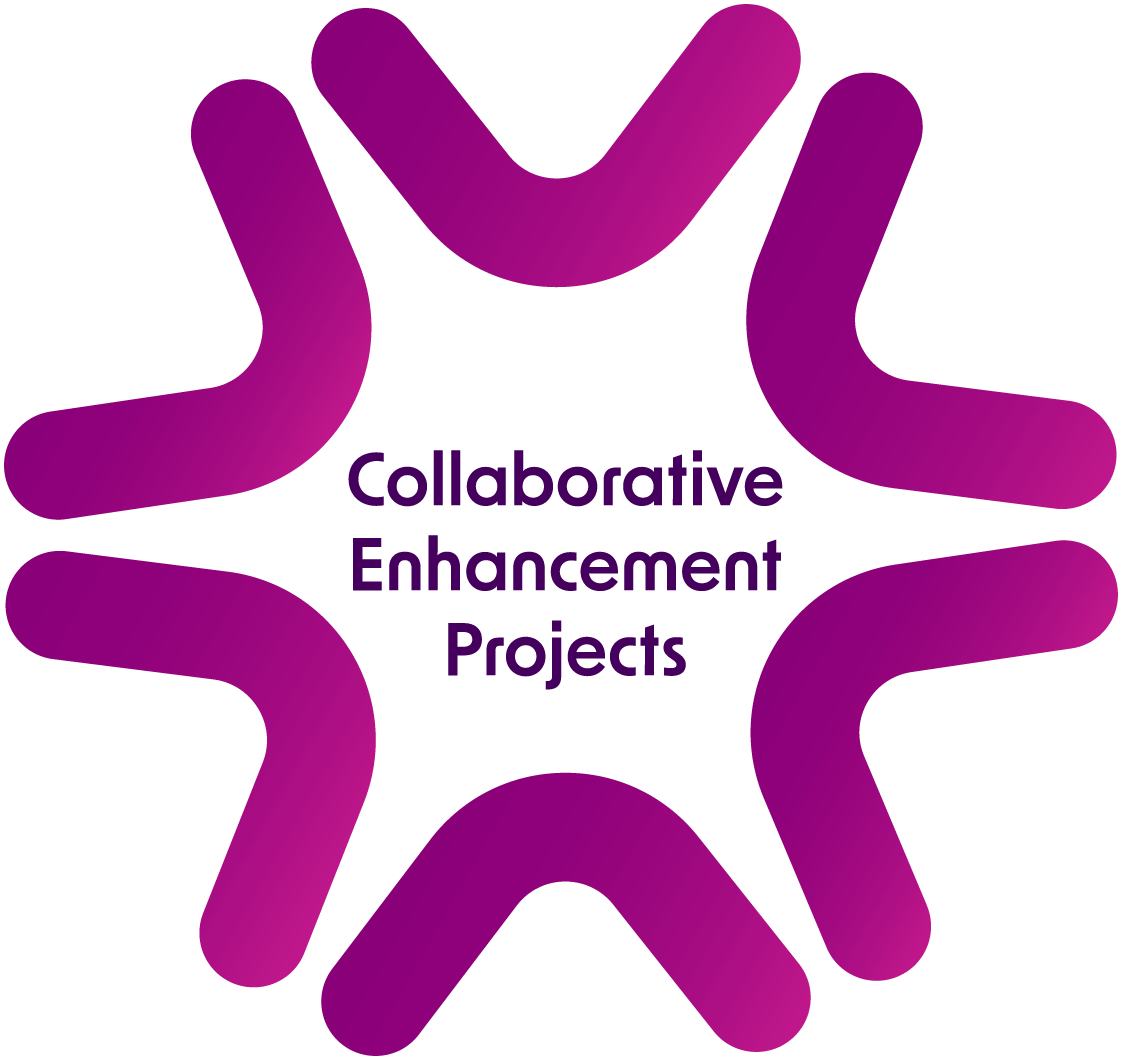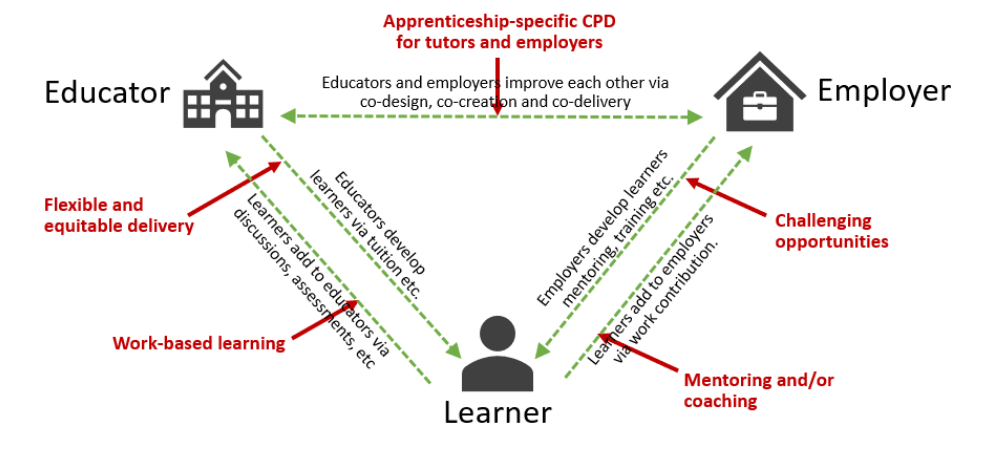
The aim of this research is to explore lifelong learning opportunities in degree apprenticeships and develop a practical framework to make the most of them. The project will look at the benefits for learners, employers, and educators, identify gaps in the relationship between them, and find ways to bridge these gaps to benefit all three groups.
About this project
Lifelong learning should be central to higher education and professional development, especially in degree apprenticeships.
Many learners take degree apprenticeships to develop their careers. Employers see them as a way to drive innovation, and educators and employers work together to share ideas and practices, which also supports personal growth.
Other research shows that employers often use degree apprenticeships to upskill their current workforce. From reviewing these findings, the project team has seen that the relationships between learners, employers, and educators create learning benefits that flow both ways.
While lifelong learning is usually talked about in terms of learners, employers and educators gain important benefits too, which are often overlooked. This research aims to explore these opportunities within degree apprenticeships and develop a practical framework to make the most of them in a sustainable way.

The project will use a mixed-methods approach to explore lifelong learning opportunities within the tripartite relationship between learners, educators, and employers. This approach allows for a thorough analysis of current benefits, identification of gaps, and development of practical recommendations.
Methodology steps:
Literature review: Conduct a detailed review to identify drivers and barriers of lifelong learning for key stakeholders in degree apprenticeships.
Gap analysis: Examine models of tripartite relationships in education using secondary quantitative data from QAA-sponsored reports to map lifelong learning gaps.
Exploring gaps: Conduct semi-structured interviews with 30 participants (10 learners, 10 educators, 10 employers) across multiple QAA member institutions in Scotland and England to gain in-depth insights into experiences, perceptions, and potential solutions.
Data analysis 1: Analyse the Step 2 data to create a thematic roadmap for interventions to maximise lifelong learning opportunities.
Validation: Use focus groups with Step 3 participants to validate the thematic roadmap.
Data analysis 2: Refine findings from the focus groups to produce an actionable framework for learners, educators, and employers.
Lead institution
- Dr Ernest Edifor, Reader (Digital Education), Director of Digital and Technology Solutions Degree Apprenticeship, Leader of Apprenticeship Research Unit, Manchester Metropolitan University, England, E.Edifor@mmu.ac.uk
- Dr Shobana Partington, Head of Department (Operations, Technology, Events and Hospitality Management, Manchester Metropolitan University, England, s.n.partington@mmu.ac.uk
Partner institutions
- Dr Matthew Barr, Senior Lecturer in Computing Science, Head of Section & Programme Director at University of Glasgow, Director of Education at SICSA, and Director of the Ada Scotland Festival, University of Glasgow, Scotland,
Matthew.Barr@glasgow.ac.uk - Ann Minton, Independent Consultant, Work Based Learning Practice Consultant, England, annthescan@gmail.com
- Dr Ailsa Crum, Independent Consultant, Ailsa Crum Consulting Ltd, ailsa@ailsacrum.com
- Tara Williams, Apprenticeships Lead, Cardiff Metropolitan University, Wales, tewilliams@cardiffmet.ac.uk
- Abbie McKenna, Head of Centre for Apprenticeships Skills & Flexible Education, Ulster University, Northern Ireland, ae.mckenna@ulster.ac.uk






